Author Archives: Ajitesh Kumar
How to Build Liv.ai like Speech-to-text Conversion Platform

This article explores the technology landscape which can be used to build similar platform / service offerings like Liv.ai. First and foremost, congratulations to Liv.ai team for leveraging existing cloud-based AI and speech recognition (Speech-to-text conversion) technologies to come up with a set of business offerings which leverages speech-to-text conversion technology to create great value for businesses. The founding team (IIT KGP Alumni – Subodh Kumar, Sanjeev Kumar and Kishore Mundra) nailed it! Doing right thing at right time at right place. Liv.ai enables developers to convert speech-to-text by using Powerful Neural Network Models with exceptional accuracy and minimal latency. At this point, the platform supports 9 languages including Hindi, English, Bengali, Gujarati, Telugu, Tamil, Marathi, …
CareNGrow powers Preventive Healthcare Platform with AI & Cloud-Computing

CareNGrow is building a preventive healthcare platform based on AI and cloud-computing technologies. One of the goals is creating and monitoring the physical, psychological, and behavioural health profile of children in schools. The following represents key workflow steps which is implemented while examining a kid / child: Data gathering Transfer data over internet to cloud Feed the data into the analytics platform Perform the data analysis (Predictive Analytics) Generate health reports This is a brainchild of a young doctor, Dr. Meghana Kambham. CareNGrow is already making waves in different startup competitions owing to the work they have been doing. In this relation, they have been announced as one of the UberExchange winners. Check …
Spring Framework Interview Questions & Answers – Set 1

This is a practice test / interview questions and answers for Java Developers working on Spring Framework. These questions can be used to check your knowledge on Spring framework fundamentals. They could be useful and helpful in preparing you for upcoming interview in relation with Spring framework. The following are some of the topics in relation with Spring Framework Fundamentals which are covered in this practice test: Spring IOC concepts Configuration metadata Beans packages for IOC container Beans instantiation Different types of DI techniques (Constructor-based, Setter-based DI) Beans initialization (Eager / lazy initialization) Method injection techniques (lookup method, arbitrary method injection) Bean Scopes (Singleton, Prototype, Request, Session, Application, WebSocket) Practice Test on Spring Framework Fundamentals [wp_quiz id=”6035″]
Proscia uses AI-powered Digital Pathology for Cancer Screening

Proscia, a cloud-based digital pathology provider is on a mission to bring computer intelligence (using artificial intelligence (AI)) to pathology, fighting cancer by unlocking the data hidden in tissue. The following are some of the key aspects of cloud-based digital pathology technology of Proscia: Telepathology Data management Pathology Cloud Web application for managing/sharing slides’ images Image analysis (AI) The details in relation to Proscia technology can be found on this page, Proscia Platform. Proscia Technology – Telepathology One of the key aspects of the Proscia platform is data gathering (slides’ images) from different diagnostic sources. In order to achieve this, Proscia platform supports following: Supports different slide scanning hardware devices to scan the slides and create related …
Kubernetes – Interview Questions and Answers on Pods

This page represents practice test consisting of objective questions and answers on Kubernetes. The practice test can prove to be very helpful if you are preparing to take Certified Kubernetes Administrator (CKA) certification examination in near future. It covers the Core Concepts from CKA certification exam syllabus. Those preparing for interviews in relation with Kubernetes or cloud-native apps would find these questions to be useful enough. These questions can prove to be useful for interns / freshers / beginners. These questions are related with some of the following topics: Kubernetes Pods New feature release in Kubernetes 1.8 such as taints and tolerations The following is link to other practice tests: Practice test on introduction to Kubernetes Practice …
Niramai uses AI / Thermal Imaging for Breast Cancer Screening

Niramai Health Analytix, a Bengaluru-based startup is creating an AI-powered software system for breast cancer screening. Niramai is using following technologies to achieve the objective of breast cancer screening: Thermal image processing using thermal sensing device (thermal camera) Machine learning algorithm Hardware devices integrated with real-time cloud-based diagnostics; These hardware devices are capable of capturing thermal images What/How of Thermal Image Processing? Thermal image processing, also termed as thermal imaging, is a method of improving visibility of objects in a dark environment by detecting the objects’ infrared radiation and creating an image based on that information. source: techtarget. The key to capturing thermal images of an object is a heat sensor (also called as thermal camera) which is …
AIndra uses AI to Solve Cervical Carcinoma Cancer

AIndra, a Bengaluru-based startup is into the business of building innovative products and technologies to aid computational pathology. Established in 2014, AIndra’s vision is to build state of the art medical devices for screening Cervical Carcinoma. This article is created solely based on my analysis of information found on AIndra’s website. The objective is to make readers aware of some of the following technologies AIndra is using and, how they can be used to solve healthcare problems, in general. The goal is provide food for thought to the readers such that they can use some of these technologies in their future startups. Computation Pathology Telepathology If you work in AIndra, please feel …
15+ AI Startups for Cancer Prediction / Treatment
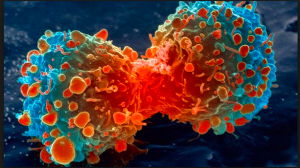
This is a list of 15+ startups using artificial intelligence (AI) technologies for cancer/oncology prediction / treatment. Please feel free to suggest if any piece of information given below is incorrect or incomplete. This page will be updated from time-to-time. Startup Name Field of Interest Startup Brief OuroTech Cancer treatment Help doctors identify in advance which drugs are most likely to have the biggest impact killing a type of cancer. Doctor Hazel Skin Cancer Helps predict whether you are having from Skin cancer Color Genomics Genetic testing Focus on testing for mutations leading to a higher risk of certain cancers. Mendel.ai Clinical trials AI to match cancer patients with the latest clinical trials Grail Cancer …
Tutorials – Building Machine Learning Models for Predicting Cancer
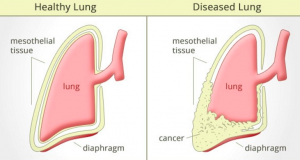
In this article, I would introduce different aspects of the building machine learning models to predict whether a person is suffering from malignant or benign cancer while emphasizing on how machine learning can be used (predictive analysis) to predict cancer disease, say, Mesothelioma Cancer. The approach such as below can as well be applied to any other diseases including different types of cancers. Predicting Mesothelioma Cancer – Supervised Learning Problem Machine learning problems are classified into different kinds of learning problem. Most important of them are following: Supervised learning Unsupervised learning Supervised Learning In supervised learning, you have a history of data with each record being labeled. Thus, in case of predictive analysis of Mesothelioma cancer, there is …
Neural Networks Interview Questions – Set 2
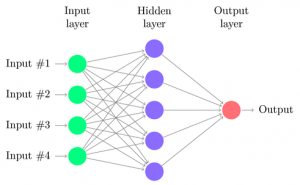
This quiz represents practice test on artificial neural networks. These questions and answers can be as well used for your upcoming interviews for the position of machine learning engineer or data scientist. These questions can prove to be very useful for testing your neural networks knowledge from time-to-time. Also, these will be useful for interns / freshers / beginners of machine learning / data science. The topics covered in this practice test are following: Introduction to different types of neural networks such as Radial Basis Network, Recurrent neural network etc. Difference between multilayer perceptron (MLP) and Radial basis function network Practice Test on Neural Networks [wp_quiz id=”6000″]
AWS Cloud9 IDE and Java / PHP Hello World

This article represents tutorial in relation to how to get started with creating your first Java / PHP Hello World program using AWS Cloud9 IDE. Supported Runtimes in AWS Cloud9 Before getting started with creating runtime environment and execute hello world programs in Java and PHP and other languages, lets look at what all runtimes are supported. Following screenshot represents the supported runtime: The above represents the fact that one could create programs / application using one of the following programming languages: C C++ Java Go Node.js PHP Python Ruby In this article, I have shown how to create hello world program using Java and PHP programming language. The following steps represent way to create your hello world programs. The following are some of the steps …
Top 10 Tricky Interview Questions for Java Developers
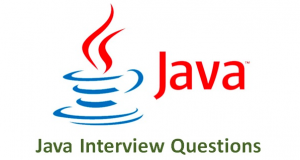
Here is a list of top ten (10) tricky / popular interview questions and answers for Java developers. I got these questions out from Stackoverflow. You are a Junior or Intermidiate level Java developer and planning to appear for Java developer interviews in near future, you would find these questions to be useful enough. Q1: Is Java “pass-by-reference” or “pass-by-value”? Ans: Java is always “pass by value”. Read the details on this page, Is Java “pass-by-reference” or “pass-by-value”? Q2: How to create a memory leak in Java? Ans: This is possible by making use of Class loader and ThreadLocal. Read the details on this page, Creating a memory leak in Java Q3: What is difference between package private, public, protected, and private? Ans: A private member …
K-Means Clustering Interview Questions – Set 1
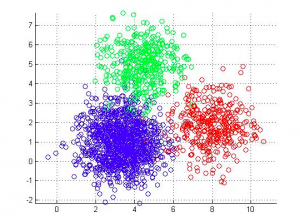
This is a practice test on K-Means Clustering algorithm which is one of the most widely used clustering algorithm used to solve problems related with unsupervised learning. This can prove to be helpful and useful for machine learning interns / freshers / beginners planning to appear in upcoming machine learning interviews. This practice tests consists of interview questions and answers in relation with following: Introduction to K-Means Clustering Cost function Practice Test on K-Means Clustering [wp_quiz id=”5961″]
Why use AWS Fargate for Deploying Your Cloud-Native Apps
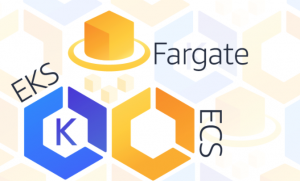
In past, if you have been used to deploying your cloud-native apps or microservices hosted within a Docker container on AWS ECS, you may have also been required to do some of the following: Choose server types in relation with provisioning AWS EC2 instances Configure appropriately to scale the cluster as and when required Optimize cluster packing In short, with AWS ECS, until the launch of AWS Fargate, you were required to manage the infrastructure and related configuration in relation with scalability etc. With AWS Fargate, Focus in on Designing and Building Apps With AWS Fargate, all that is required to be done are some of the following: Package your application in containers Specify the CPU and memory requirements Define …
AWS EKS is the Way to Run Kubernetes on AWS ECS
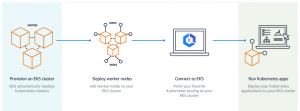
AWS Elastic Container Service for Kubernetes, AWS EKS, is a new AWS fully managed service running Kubernetes out-of-box on AWS without needing to install and operate / manage our own Kubernetes clusters. . Gone are the days when we (63% of Kubernetes workloads as per CNCF spent time and effort setting up and running / managing Kubernetes (Master and a cluster of workers) on AWS EC2 instances with no support from AWS service. Not only this, there was whole lot of high availability requirements in relation with Kubernetes which needed to be managed by running Kubernetes master on different availability zones (AZs). Key Features of AWS EKS Support for existing plugins and …
Free Books / Lecture Notes on Quantum Computing

This page represents a list of popular / top / free books and lecture notes on Quantum Computing. This page will be updated from time-to-time. Please feel free to suggest any good books on Quantum Computing that can be added to the list given below: Quantum Computation and Quantum Information: This book is authored by Michael A. Nielsen, Isaac L. Chuang. Interestingly, Michael A. Nielsen has also a free online book on Neural Network and Deep Learning. Worth a visit on his pages. Classical and Quantum Computation by Alexei Yu. Kitaev, Alexander Shen, Mikhail N. Vyalyi. Here is a page listing down work of Alexei Kitaev on Quantum Computing. Here is a page listing down other work of Mikhail Vyalyi. Quantum …

I found it very helpful. However the differences are not too understandable for me